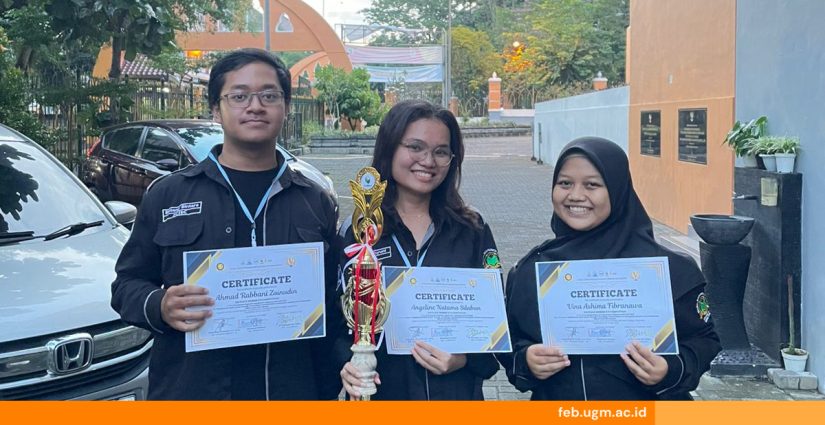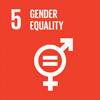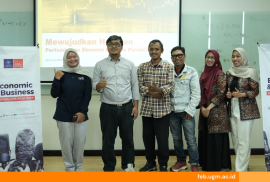
Today’s younger generation is familiar with digital investments such as stocks or cryptocurrencies. However, few young people are interested in Sharia gold as a long-term financial instrument. In fact, this instrument has great potential in Indonesia as it is stable, sharia-compliant, and suitable for long-term savings.
This situation prompted three FEB UGM students to examine further the factors influencing the low interest among young people in investing in sharia gold. From this concern arose the idea for a research project, which they then compiled into a paper titled “The Influence of Sharia Economic Literacy, Motivation, Inclusiveness, and Risk Perception on Interest in Sharia Gold Investment”. Armed with this work, the Cakrawala Inklusif team, consisting of Angeline Natama Silaban (Economics 2023), Vina Ashima Fibranawa (Accounting 2023), and Ahmad Rabbani Zainudin (Accounting 2024), successfully won 3rd place at the DIY 2025 Regional Scientific Meeting (TEMILREG) and 3rd place at the XXIV 2025 National Scientific Meeting (TEMILNAS).
Angeline explained that they highlighted four main factors related to the low interest of the younger generation in sharia gold. These factors are minimal literacy, low motivation, high risk perception, and limited access.
“The younger generation has little interest in investing in sharia gold. In fact, sharia gold can be a safe and inclusive investment option for young people,” she explained.
Angeline said that in the research conducted by her and her team, they used quantitative methods such as the ordered logit model, random forest, and SMOTE test to ensure more valid results. The results showed that a lack of literacy, low motivation, high risk perception, and limited access significantly affected interest in sharia gold investment among students.
They also made several recommendations related to this issue. First, a campus-based literacy programme so that students become familiar with sharia investment instruments from an early age. Second, micro investment incentives should be used to encourage initial participation. Third, strengthening sharia beginner-friendly digital platforms will make investment access easier and more in line with the younger generation’s lifestyle. For them, the ultimate goal is simple: students should be financial consumers and actively promote national financial inclusion.
Reportage: Orie Priscylla Mapeda Lumalan
Editor: Kurnia Ekaptiningrum
Sustainable Development Goals









